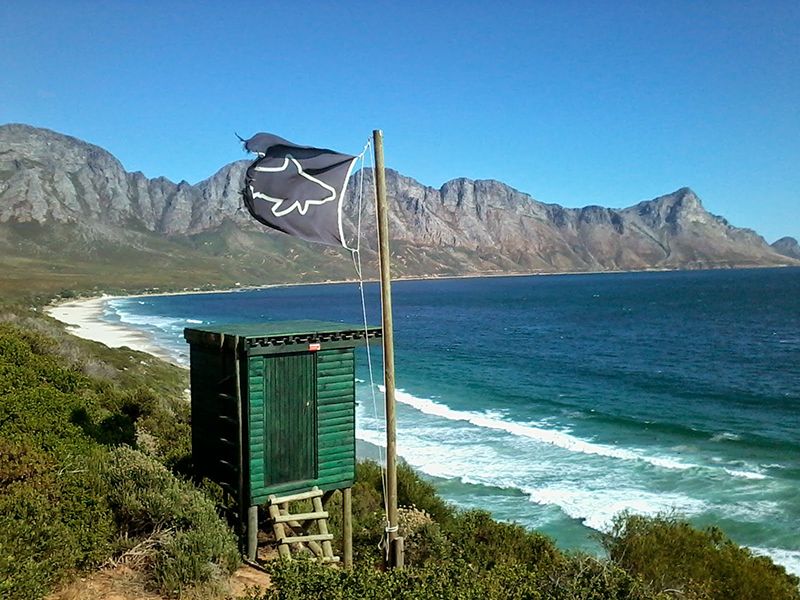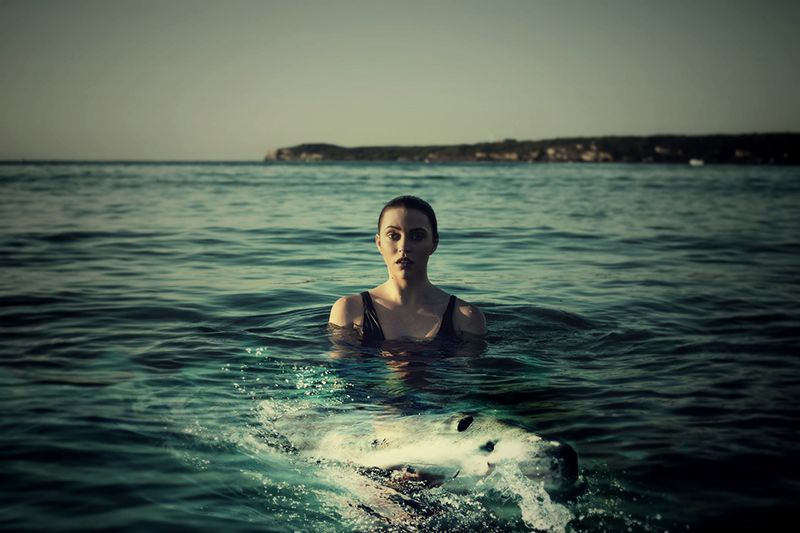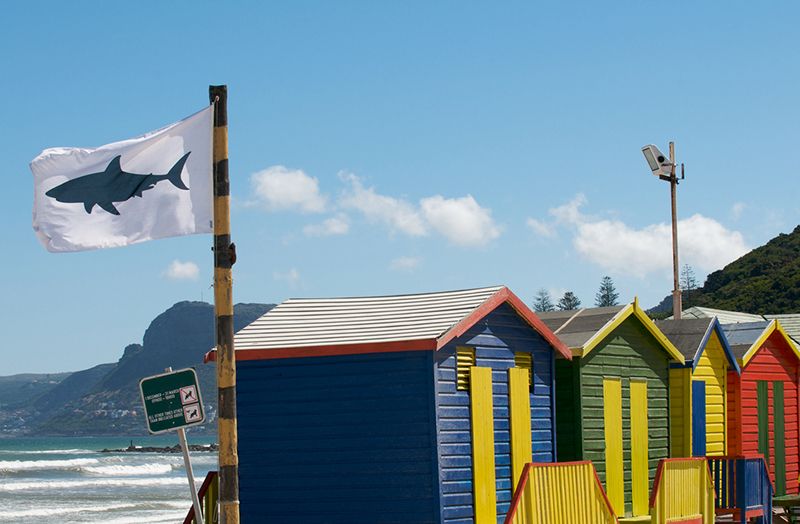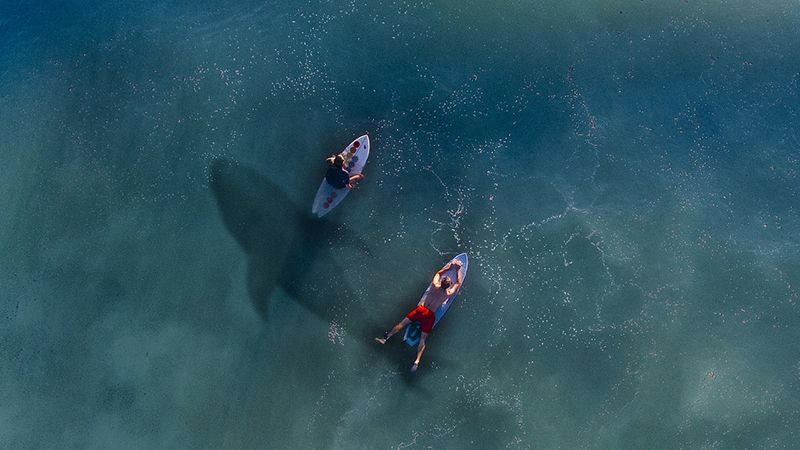Anyone who has ever seen the 1970s cult classic movie Jaws lives in fear of being attacked by a shark every time they enter the sea. While the threat of shark attacks in Cape Town is a reality, with great whites, bull and tiger sharks populating the waters off the coast, it’s important to remember that sharks kill an average of about five humans a year (while humans kill millions of sharks annually). Sharks may be fierce predators but they’re not out to kill us. Attacks often happen when we’re mistaken for seals (just think how a surfer paddling on his board looks from below). You can still make the most of Cape Town’s beautiful beaches, crystal clear turquoise waters and amazing surf spots; you just need to be shark smart. Here are a few things to keep in mind when you hit the beach:
Don’t enter the water if the beach is closed due to a shark sighting

There’s a reason why the beach is closed. You’ve been warned.
Do not go in the water if you’re bleeding
Sharks can detect even the faintest scent of blood and other bodily fluids, even from hundreds of meters away. While they’re not stimulated by the smell, it may make them curious enough to approach you.
If you see a shark, stay calm

Contrary to popular belief, sharks are not out to kill humans. If they were, shark attacks would probably be a daily occurrence. They’re much more interested in eating fish and seals. If you find yourself face to face with a shark, try to keep your cool and swim or paddle away calmly. Panicking will only attract more attention.
Keep to guarded beaches

Stick to beaches in Cape Town with lifeguards or shark spotters, who are stationed at various lookout points and will sound a shark alarm when they spot a shark entering coastal waters. If you hear the alarm, exit the water asap and don’t get back in until you’re given the all clear. You can also download the Shark Spotters app that’s updated by on-duty Shark Spotters and tells you which flags are flying at different beaches and the reasons why, whether it’s poor spotting conditions, shark sightings or another reason.
Safety in numbers
Sharks are less likely to approach groups of people, so avoid going swimming or surfing alone. If there are people around you in the water, there’s more chance of someone spotting an approaching fin and you have a support network around you if something happens.
Stay close to the shore

While sharks do enter shallow waters at times, most attacks tend to happen more than 30 meters away from the shore so don’t swim out too far.
Avoid murky water and river mouths
Don’t swim or dive in murky water. It’ll be harder to spot sharks in poor visibility. Also steer clear of river mouths as sharks often feed on the outflow of rivers and fish tend to populate these areas, thus attracting more predators.
Avoid wearing any bling
Don’t wear brightly contrasting colors or jewelry when you’re in the ocean. Sharks might associate the shimmer given off by jewelry with the shine of fish scales (this is especially true of bull sharks in murky water).
Be tech savvy

If you’re a keen surfer, consider investing in shark deterrents like magnetic bracelets. Another option is using an electronic device called a shark shield to repel sharks. Though it doesn’t guarantee your safety, the device is still useful. On the flip side, sharks can pick up electromagnetic fields from objects so avoid going in the water with your GoPro as the electric fields might attract them. This has been proven during shark cage diving boat trips when sharks often gather at the back of the boats and try to bite the outboard motors.
Don’t swim when it’s dark
Stay out of the sea at night or during twilight hours. Sharks take advantage of the low visibility at night to surprise their prey.

Don’t swim or surf in areas where lots of birds, dolphins or seals are feeding nearby. Don’t be fooled into thinking that because dolphins are present you will be safe from sharks. This activity hints at the presence of baitfish in the waters and sharks eat those too. Similarly, stay away from areas where lots of fishing takes place. Avoid swimming close to fishing boats as they may be baiting the water for their catch or gutting their catch whilst at sea.
Got any other advice or info to share about sharks? Share them with us in the comments section below.
Originally published on Ailola by Sophie Lloyd on August 13, 2018.
